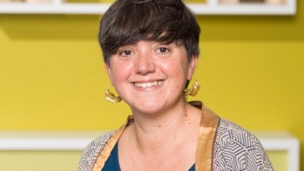Cognitive Science Colloquium - Paula Rubio-Fernández / Common ground: Between formal pragmatics and psycholinguistics

Cognitive Science Colloquium - Paula Rubio-Fernández / Common ground: Between formal pragmatics and psycholinguistics
Thursday October 16, the Cognitive Science Colloquium welcomes Paula Rubio-Fernández from the Max Plank Institute in Nijmegen, who will discuss her work in the psycholinguistics of understanding conversation.
In a review paper forthcoming in the Annual Review of Linguistics, we introduce cognitive pluralism as the idea that we have more than one solution to the problem of choosing and representing shared background information—or the problem of common ground. A cognitive-pluralist model of common ground should consider both the sources of variability in common ground use, as well as its processing demands. In this talk, I will first discuss both requirements in the context of psycholinguistic models of common ground. I will then take stock of the findings and conclusions of experimental studies of common ground, and explore future directions in line with cognitive pluralism.

